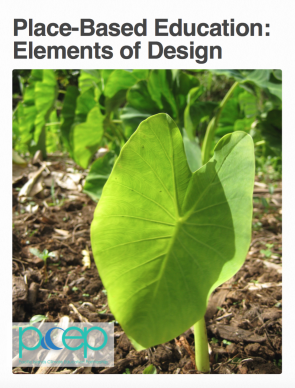Climate 101 Course
Climate 101 is a pedagogical, content-based course designed to help teachers and resource managers effectively teach and communicate climate science in place-based, culturally relevant ways.
The course utilizes resources developed by the Pacific Islands Climate Education Partnership with NSF funding, and an exemplary middle school science curriculum developed by the Lawrence Hall of Science with NOAA funding.
Topics include at the local level, the connections among weather, climate, ecosystems, and human communities; and at larger scales, climate variability (e.g., El Niño), ocean and wind circulation, the carbon cycle, Earth’s energy flows, global warming, causes of climate changes, impacts of climate changes on island ecosystems and communities, and adaptations to increase resilience with respect to climate change.
Climate 101 Course
PCEP – Place-Based Education Guide
Week 1. My Island: Place-Based Education
Reading: Teaching Scientific Comparison Writing
Handout: Scientific Comparison Writing
Climate 101 Course Test Scoring Guide
Week 2. Local Island Weather/Climate
Reading: Climate Change in the Marshall Islands
Handout: Unit 1- How Do the Ocean and Atmosphere Interact?
Handout: Weather, Climate or Both?
Handout: Understanding Visuals in the RMI Book
Handout: Ocean Sciences Sequence 1.4
Week 3. Local Island Weather/Climate
Handout: Investigating Currents
Handout: Making Sense of Ocean Currents
Week 4. Concluding Group of OSS Unit 1 Sessions
Handout: Global Winds and Ocean Surface Currents
Handout: Ocean Currents, Global Winds, and El Nino
Week 5. Introducing Earth System Science
Handout: Matter, Energy, and Life in the Earth System
Week 6. Water Cycle and Start Carbon Cycle
Reading: Dr. Art’s Guide to Planet Earth
Handout: Carbon Cycle Reservoirs
Handout: Learning with Visual Features About the Water Cycle
Handout: First Ideas About Carbon Cycle
Handout: Names of Large Numbers
Week 7. Deeper into the Carbon Cycle
Handout: Carbon Cycle Hypotheses
Handout: Model the Carbon Cycle Using Balloons
Week 8. Earth’s Energy Flows and Global Climate
Reading: How Do Scientists Know about Carbon in the Atmosphere?
Handout: Changes in CO2 Concentration
Handout: Greenhouse Effect Simulation
Week 9. Climate Changes Impact Ecosystems and Human Systems
Handout: Impacts of Climate Change
Handout: Notes on Climate Change Impacts
Climate 101 Course Test Scoring Guide

